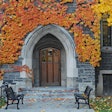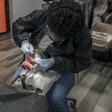
Colorado law, like in most states, specifies that only licensed dentists can own or control dental practices in order to protect doctor/patient relationships and ensure that decisions are made based on patient care, not corporate profits.
But when state officials last year shut down HomeCare Dental Services, which had been providing dental care services to 70 nursing homes in the Denver area, owner and nondentist Ken Kucera took advantage of an exemption in the Dental Practice Act that allows nondentists to own dental practices if they are nonprofits.
Kucera reregistered his company as Visiting Ancillary Services, a nonprofit that also provides dental care to nursing homes. But he insists it isn't a dental practice.
— Ken Kucera, Visiting Ancillary Services
"We're a billing and scheduling agency," he told DrBicuspid.com. "We contract with facilities to provide contracting dentists; we're an intermediary between dentists and facilities."
Donald Connor, DMD, a Denver dentist who also provides dental care to nursing homes, disagrees.
"He's doing exactly the same thing as before, he just changed his name," he told DrBicuspid.com. "He's not a dentist but a guy with a great idea."
Dr. Connor confirmed that his wife and assistant, Janina, complained to the state Board of Dental Examiners about Kucera, which resulted in a cease and desist order last year. Kucera had been operating HomeCare Dental Services for seven years before the dental board issued the order.
"They said it was legitimate in 2003. What changed?" he said. "I'm a business guy, not a dentist. We were always clear that we were a business-to-business service."
Loophole in the law?
Although Kucera attributes the closure of his previous company to a change of board members and Dr. Connor's concerns about competition, the situation raises questions about state laws designed to guard against nondentists running dental practices.
Molly Pereira, the associate executive director of the Colorado Dental Association, said the state's Dental Practice Act is designed to protect patients.
"It is to make sure that corporations are not a third-party interest barrier to patient care," she told DrBicuspid.com. "It was done to make sure that decisions are between the doctor and patient."
When asked if the nonprofit exemption isn't simply a legal loophole that nondentists can use to get around legal requirements, Pereira said the law is up for review in 2014. "That is certainly something we will take a look at," she said.
Kucera said he doesn't influence decisions made by his seven contract dentists, who are paid on an hourly basis. "We always ensure the doctor/patient relationship is sacred and apart from business considerations," he said.
Before his problems with the dental board began, he was providing dentists to 70 of the Denver area's 100 nursing homes, Kucera noted. His new company now has contracts with 26 facilities and plans to expand to 50 within the next year.
Kucera said he tries to provide a "stress-free, pain-free, positive experience" for patients.
"It's not unusual for residents to wheel themselves into an administrator's office and rave about how wonderful our people are," he said.
But Dr. Connor pointed out that Visiting Ancillary Services has not yet filed paperwork for formal approval of its nonprofit status from the Internal Revenue Service.
Kucera said he has hired a company to file the required 300-page document, which is not due until next fall. The sooner the 502(c)(3) form is filed, the sooner he can accept charitable donations, he noted.
Dr. Connor also claims that Kucera is violating the Health Insurance Portability and Accountability Act (HIPAA) because he is storing dental records in his office.
"Only dentists are allowed to have these records," he said.



















